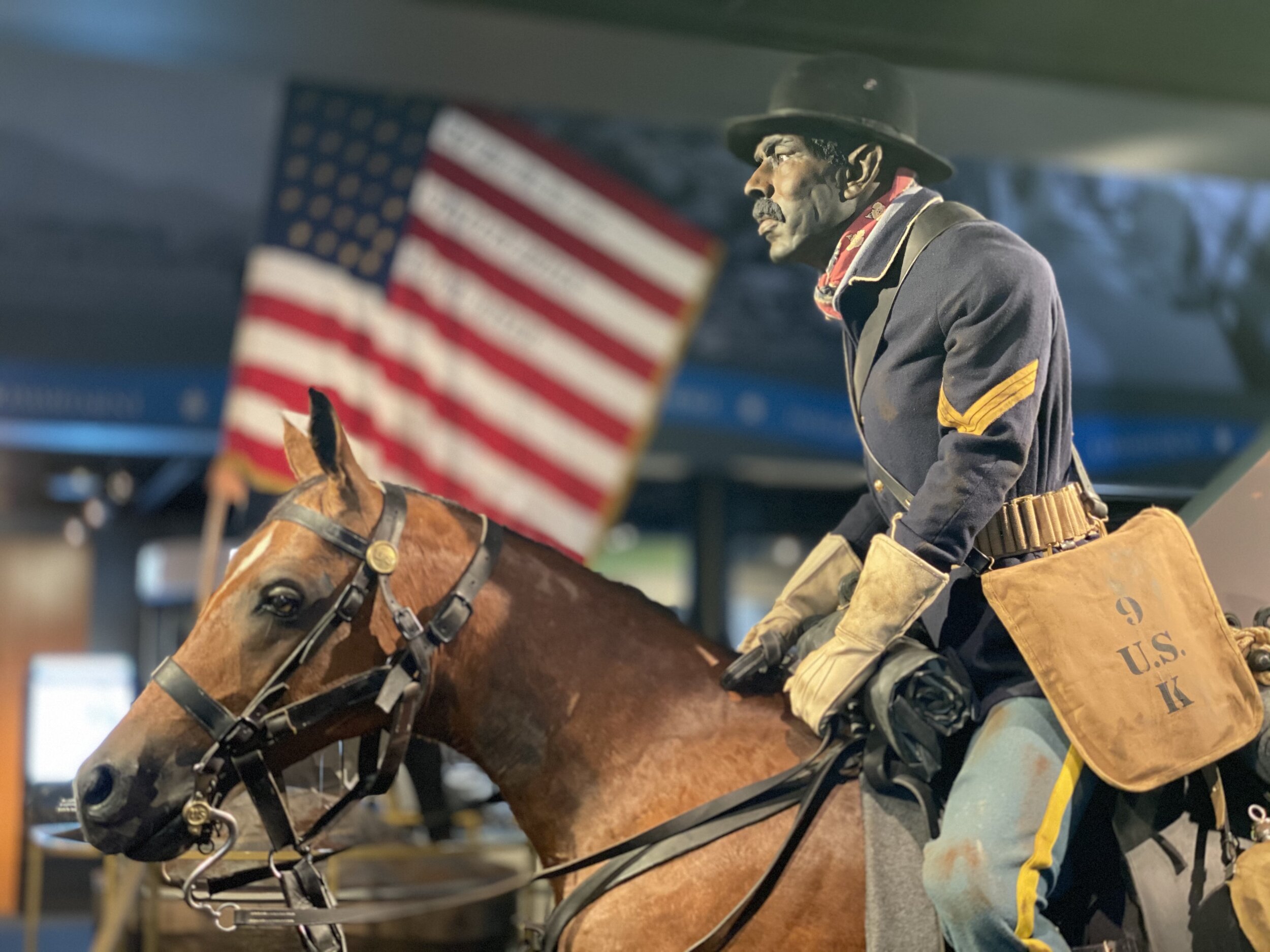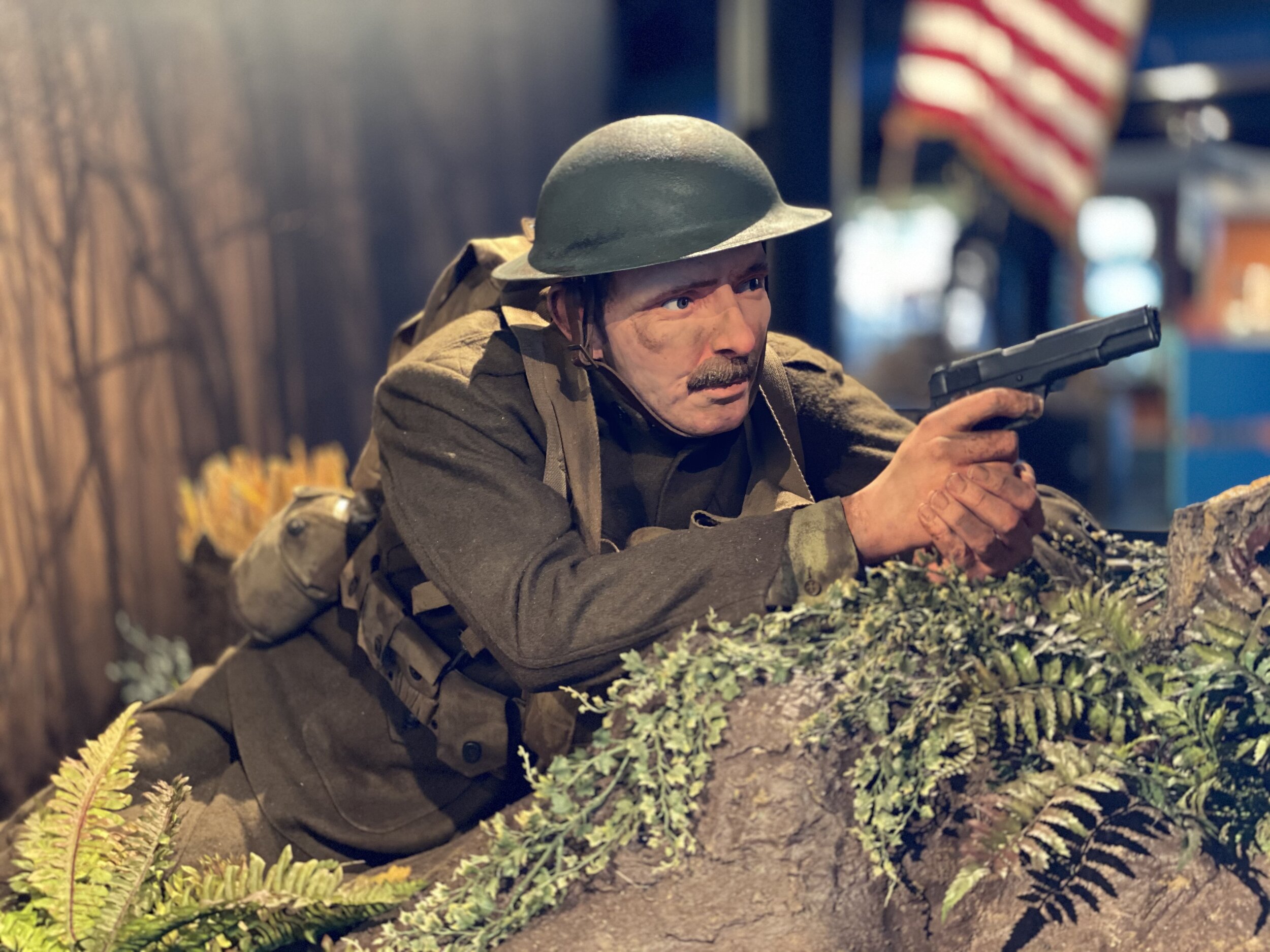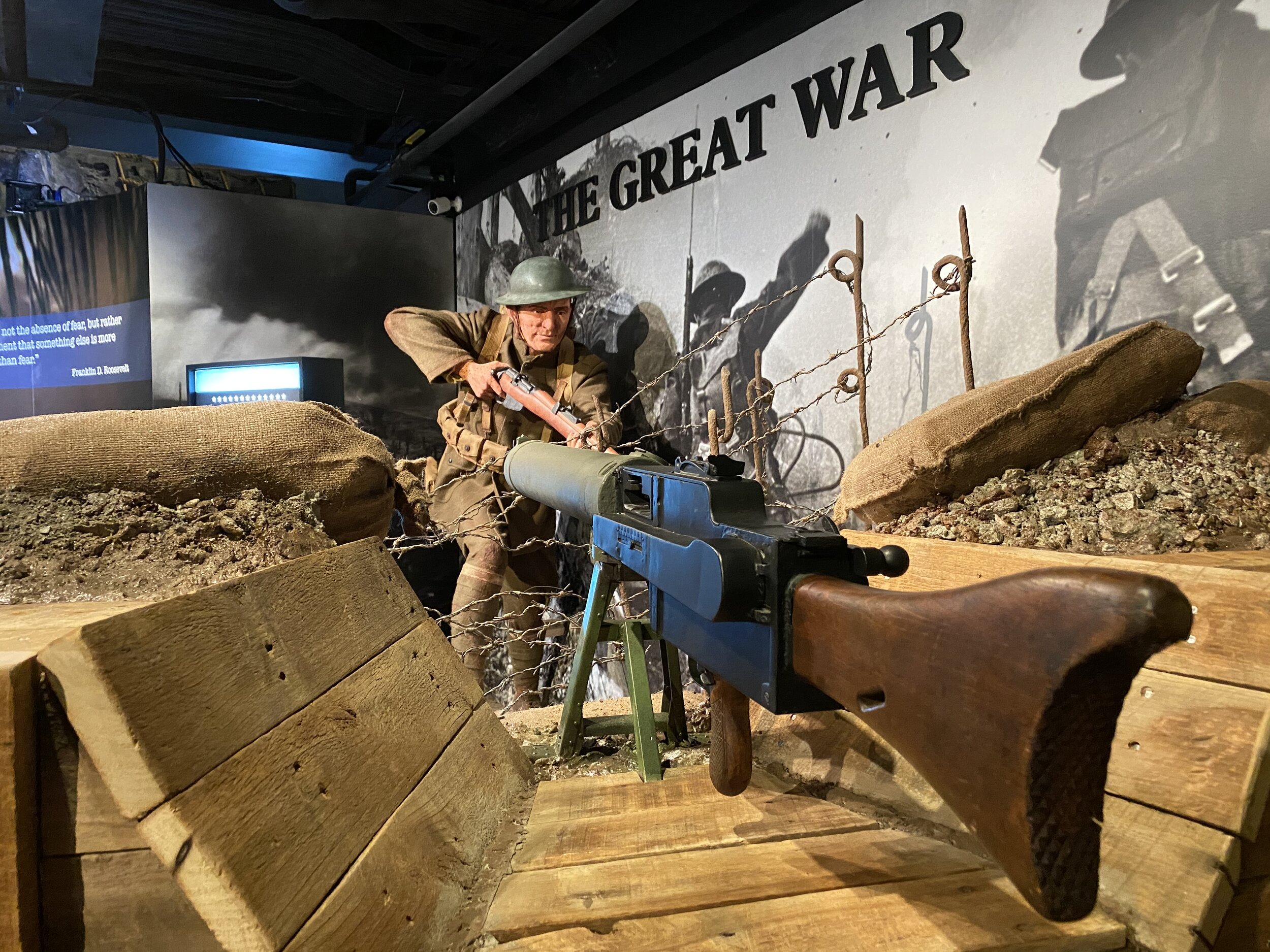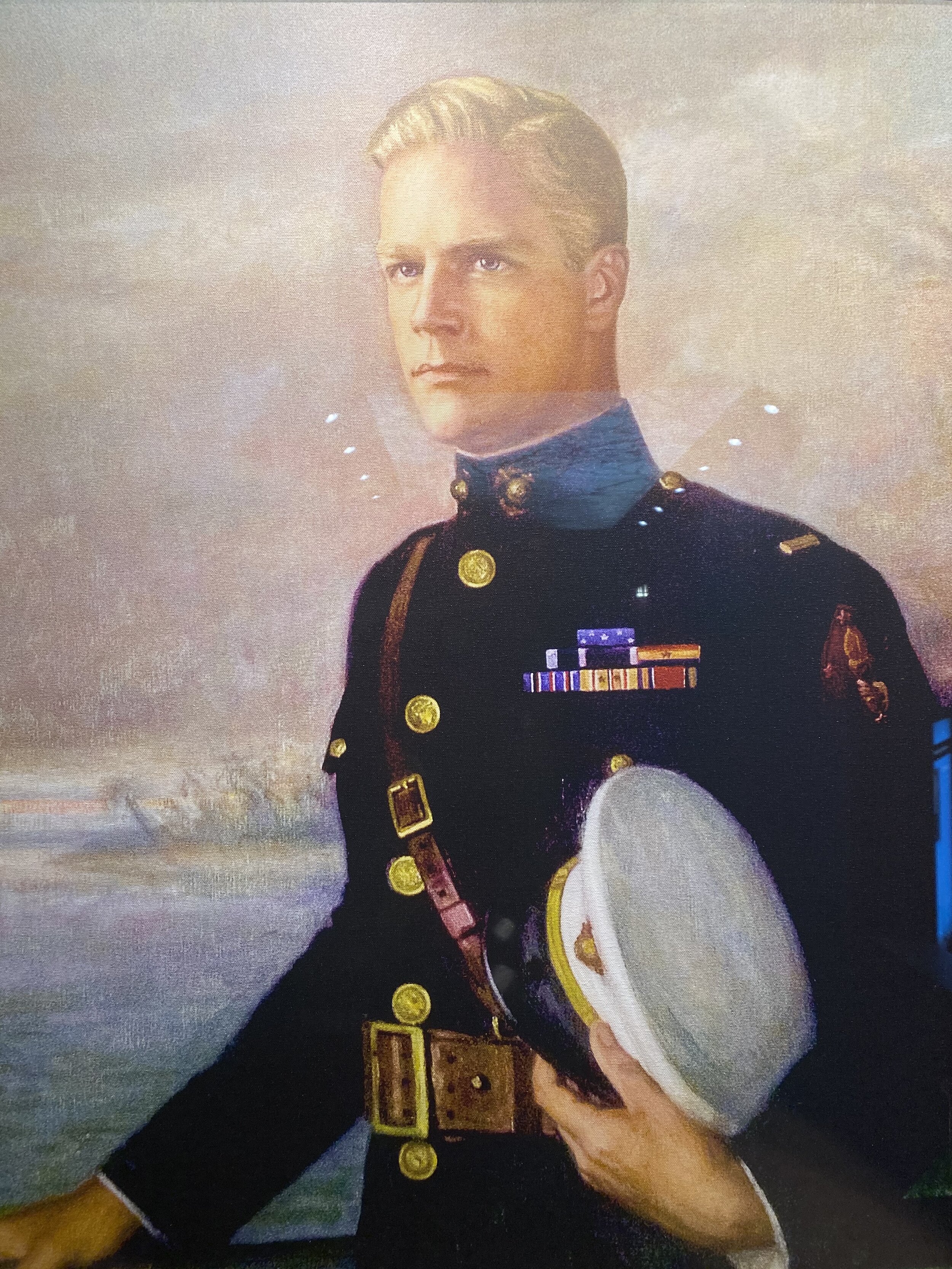Chesterton and Orwell on long words
/GK Chesterton (1874-1936) and George Orwell (1903-50)
In Orwell’s celebrated essay “Politics and the English Language,” which I’ve revisited several times recently, he concludes by offering the writer a set of six “rules that one can rely on when instinct fails.” Among them is:
ii. Never use a long word where a short one will do.
Orwell’s concern here is with clarity—both of expression and of thinking.* Earlier in the essay he writes:
The inflated style is itself a kind of euphemism. A mass of Latin words falls upon the facts like soft snow, blurring the outlines and covering up all the details. The great enemy of clear language is insincerity. When there is a gap between one’s real and one’s declared aims, one turns as it were instinctively to long words and exhausted idioms, like a cuttlefish spurting out ink.
Compare this passage from Chesterton (in Orthodoxy Chapter VIII, “The Romance of Orthodoxy”), which I’ve just rediscovered thanks to my Facebook memories:
But in truth the chief mark of our epoch is a profound laziness and fatigue; and the fact is that the real laziness is the cause of the apparent bustle. Take one quite external case; the streets are noisy with taxicabs and motorcars; but this is not due to human activity but to human repose. There would be less bustle if there were more activity, if people were simply walking about. Our world would be more silent if it were more strenuous. And this which is true of the apparent physical bustle is true also of the apparent bustle of the intellect. Most of the machinery of modern language is labour-saving machinery; and it saves mental labour very much more than it ought. Scientific phrases are used like scientific wheels and piston-rods to make swifter and smoother yet the path of the comfortable. Long words go rattling by us like long railway trains. We know they are carrying thousands who are too tired or too indolent to walk and think for themselves. It is a good exercise to try for once in a way to express any opinion one holds in words of one syllable. If you say “The social utility of the indeterminate sentence is recognized by all criminologists as a part of our sociological evolution towards a more humane and scientific view of punishment,” you can go on talking like that for hours with hardly a movement of the gray matter inside your skull. But if you begin “I wish Jones to go to gaol and Brown to say when Jones shall come out,” you will discover, with a thrill of horror, that you are obliged to think. The long words are not the hard words, it is the short words that are hard. There is much more metaphysical subtlety in the word “damn” than in the word “degeneration.”
Chesterton and Orwell’s concerns neatly overlap here.** And the example provided by Chesterton also helps make clear (I almost wrote “clarify”) another of Orwell’s rules:
v. Never use a foreign phrase, a scientific word or a jargon word if you can think of an everyday English equivalent.
I’ve heard this rule dismissed as “linguistic chauvinism,” an odd charge to make against a man like Orwell, but the truth is that most of our bureaucratic jargon, especially the legalese and pseudoscientific managerial talk that passes for political discourse and social critique now, comes into English from other languages. To take just one example, Latinate words, which tend to be longer, with more syllables to go rattling by, have been an occasional feature of English since before the Conquest,*** but have grown like wisteria all over the solid oak of the language’s basic Germanic grammar and vocabulary. It can certainly be pretty, but if there’s too much of it it will obscure the tree underneath—and even kill it.
And our brains know this: Old English words are gut words, bone words, the words we learn at our mother’s breast, while the multisyllabic vocabulary ported into English from specialist fields—medicine, science, law, theology—tends toward the abstract. It is clinical language. Phrases like capital punishment, lethal injection, execution of sentence all hold the fact that a man is being killed at arm’s length. And consider how much the adjective of the decade, systemic, muddles and covers up.
I could go on, but Orwell’s own famous example is enough. In his essay, he quotes Ecclesiastes 9:11:
I returned and saw under the sun, that the race is not to the swift, nor the battle to the strong, neither yet bread to the wise, nor yet riches to men of understanding, nor yet favour to men of skill; but time and chance happeneth to them all.
And reimagines it as a modern man might be tempted to express it:
Objective consideration of contemporary phenomena compels the conclusion that success or failure in competitive activities exhibits no tendency to be commensurate with innate capacity, but that a considerable element of the unpredictable must invariably be taken into account.
None of which is to say never to use Latin-rooted words. It’s impossible—which is itself of Latin origin. But if you want to write clearly and forcefully, you’ll hew as closely as possible to the clear, hard Germanic words we learn first, as babies.
And to kick it back to Chesterton, in a passage from The Everlasting Man that I’ve written about here before, “No wise man will wish to bring more long words into the world.”
Footnotes or, if you prefer Latin, citations:
*I’ve written about Orwell’s rules here before, examining their overlap, especially that concern with clarity, with the rules of two other celebrated but quite different writers—Elmore Leonard and CS Lewis. Read that here.
**Interestingly, Orwell’s first published essay appeared in Chesterton’s own newspaper, GK’s Weekly, in December 1928.
***The Norman Conquest gave us the first big spate of French and Latinate vocabulary in English, but lots of theological jargon had already made its way in. One example: bishop is a modern spelling of bisceop, which is what you get when an Anglo-Saxon cleric tries to pronounce the Latin episcopus, which had already been borrowed from the Greek ἐπίσκοπος.























